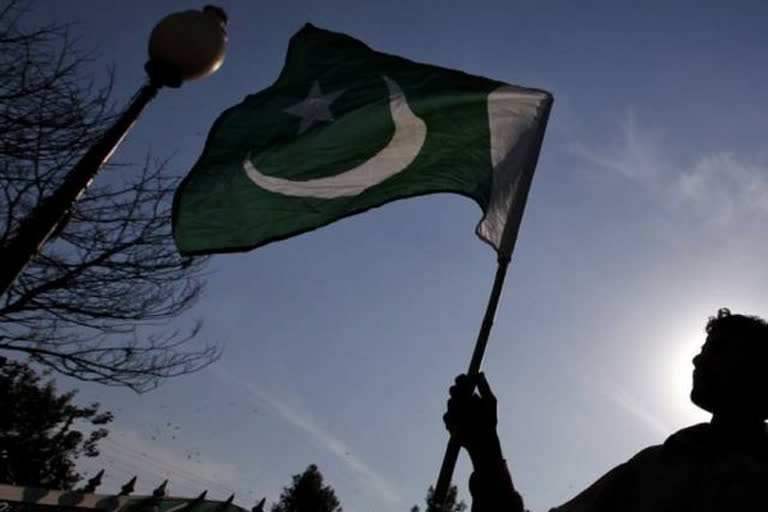New Delhi: Pakistan Army chief General Qamar Javed Bajwa has upped his stakes fully in the ongoing political dogfight in Pakistan where the very influential Army is pitted against Imran Khan. In no time in the recent past has the gulf between the civilian government and the military been as wide as it is now, with the Army trying its best to cosy up to the US while Khan bats for the Russia-China axis.
Responding to a query after his speech at the Islamabad Security Dialogue on April 2 (Saturday), strongly pitching for US support, Gen Bajwa said: “We are not looking for camp politics. We had historically excellent relations with US. The good army we have today is largely built and trained by US. The best equipment we have is US equipment.”
Alluding to historical ties with the US, he asked: “We have been your (US) allies for a very long time, we were part of SEATO, CENTO and Baghdad pact, we supported you in Vietnam, we supported you in Afghanistan, we helped you dismantle the erstwhile Soviet Union and the muck you created yesterday we are trying to clean that. So we have paid a lot of cost. What are you doing about us?”
While Bajwa’s assertion amounted to a plea to the US, Pakistan had cherished proximate strategic and military ties with the US for decades before the souring began with the 9/11 incident of 2001 and the events thereafter that further plunged. Finally, it resulted in the US changing tack that aimed at winning over India while China invested heavily in Pakistan including in the CPEC.
Also read: Jat General Vs Pathan PM in Pak’s stillborn democracy
Bluntly stating that military ties with China enhanced as the US and the West refused to sell weapons to Pakistan under Indian pressure, Gen Bajwa added: “Our military cooperation with China is growing because we are denied equipment from the West. Many of the deals which were concluded have been cancelled… if you feel that there is too much of a Chinese influence in Pakistan, the only way to counter is by bringing in the counter investment. Who stops you? We welcome any investment.”
On the other hand, Imran Khan, on Sunday (April 3), went to the extent of naming Donald Lu, US assistant secretary of state for central and south Asia, as the person who was involved in the ‘foreign conspiracy' to topple his government. On parallel lines, the US and Russia have declared their favourites in Pakistan while China will certainly be apprehensive about its investments.
Denying Khan’s allegations, the US State Department has said his charges of US involvement in the no-confidence move against Khan’s government were just allegations without any truth. Terming the US role in the internal affairs of Pakistan as “another attempt of shameless interference”, Russia said it was a US effort to punish Khan for his “disobedience”.
Russian foreign affairs spokesperson Maria Zakharova said in a statement: “This is another attempt of shameless US interference in the internal affairs of an independent state for its own selfish purposes… The [Pakistan] prime minister himself has repeatedly stated that the conspiracy against him was inspired and financed from abroad.”
Also read: Imran Khan faux pas: 'America...err...I mean some foreign country sent a threatening memo'
On the surface, what appears to be a conflict between Khan and General Bajwa, is actually a much deeper malaise that has not allowed democracy to strike deep roots—the main reason why major world powers are finding it a fertile ground to indulge in their rivalries. Pakistan society is divided into several loyalties of which Punjabis, Pathans, Balochs, Sindhis, and Mohajirs are the main ethnic groups with no love lost for each other with the overwhelming Punjabi domination of the Pakistani military being a major bone of contention.
Against this backdrop, the democracy or its façade in Pakistan is controlled by two institutions—one is the Army, the other being the few thousand rich and powerful families of landlords loosely termed the ‘biradari’. The sole contact between the average Pakistani and the state is through the ‘biradari’ who also have a major say on which party to vote for in the elections.
It is again through the patronage democracy exercised by the ‘biradari’ that public services are facilitated including the spending of the development funds. The power to dispense or deny patronage is what makes these traditional elites all-powerful. In the 75 years of Pakistan’s existence, the Army has ruled for about 33 years while none of the 19 PMs have ever been able to complete one single full term yet, prompting questions on the country’s democratic moorings.
Pakistan’s persistent attempt to mature into a democratic state has been a story fraught with abject failures. It failed majorly again on Sunday (April 3) when PM Imran Khan pre-empted a non-confidence vote in the National Assembly by effecting a dissolution of the House.
Also read: China keeps a close watch on political turmoil in Pakistan
The House deputy speaker, Qasim Suri, dismissed the no-confidence motion Monday on the basis of allegations that a foreign power was trying to bring about a regime change in Pakistan. It is now up to the country’s judiciary to look into the legality of the government’s action.



